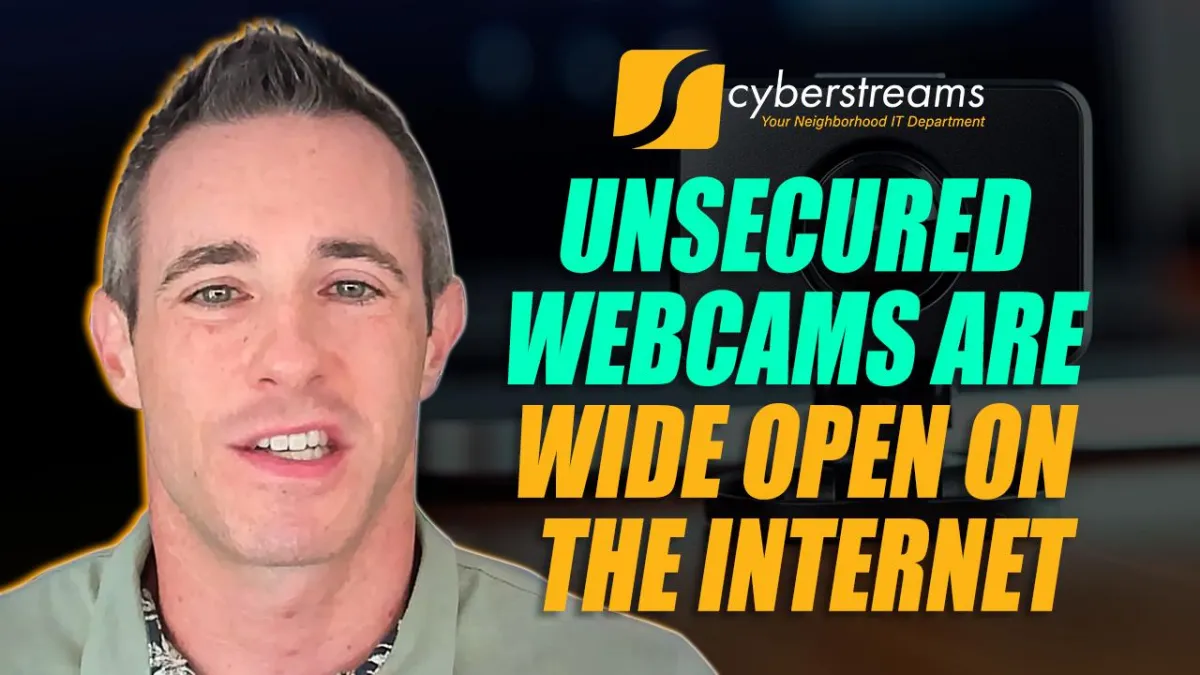
Unsecured Webcams Are Wide Open On The Internet
Imagine leaving a window wide open in your home or office, not because you forgot, but because you didn’t realize it was even open. That’s exactly what’s happening with tens of thousands of webcams across the globe.
In 2025, reports revealed that over 40,000 webcams were streaming live online without any form of security, no passwords, no encryption, nothing stopping anyone from tuning in. If you're using a webcam for work, meetings, or home monitoring, yours could be one of them.
Let’s break it down in plain English to help you take control and secure your digital windows.
The Scope of the Problem
Think of your webcam as a window into your world. If you wouldn't leave your blinds open at night, you shouldn't leave your camera unprotected.
Many of these webcams are connected to networks without proper firewalls, use default settings, or have no passwords at all. Others rely on outdated or insecure protocols like RTSP (Real-Time Streaming Protocol), which streams video without encryption, making them ripe targets for hackers. It doesn’t help that many cameras lack two-factor authentication, a basic layer of protection in today’s cybersecurity landscape.
To make matters worse, some exposed webcams end up indexed by search engines like Shodan, a tool often used by cybersecurity professionals, but also by attackers looking for vulnerable devices.
What’s at Risk?
The risks aren’t hypothetical. Live feeds from unsecured webcams have shown everything from office meetings and whiteboard notes to kids playing in living rooms. That’s not just creepy, it’s dangerous.
Hackers can:
Record and sell access to these feeds to voyeurs
Use footage for blackmail
Map out physical spaces for theft
Exploit weak firmware to access other devices on the same network (like laptops, smart home systems, and routers)
In 2023, a hacked webcam in an office led to the leak of confidential contract negotiations, resulting in $80,000 in damages. These attacks aren't rare, they're growing.
According to a 2025 Bitsight report, 30% of IoT devices, including webcams, lack even the most basic security features. As someone who personally has nearly 60 IoT devices on my network, with about a third being webcams, this issue hits close to home.
What You Can Do Right Now
If you use webcams for remote meetings, home security, or even cloud-based surveillance, an exposed feed could leak private moments, sensitive business discussions, or put your physical security at risk.
Here are three simple steps to secure your cameras now:
1. Secure Your Webcam
Change default usernames and passwords
Enable encryption where available
Keep firmware updated
2. Check Network Settings
Use a properly configured firewall to block unauthorized access
Don’t rely on factory settings, they prioritize ease of use, not security
3. Monitor Camera Activity
Watch for odd behavior (e.g., indicator lights turning on unexpectedly)
Use services that actively monitor and alert you to suspicious activity
Conclusion: Don’t Let Hackers Watch You Work or Live
In today’s hyperconnected world, webcams are essential, but they can also be one of the most dangerous devices in your home or business if left unsecured.
At CyberStreams, we’re passionate about helping individuals and organizations lock down their digital environments. Your privacy isn’t just a convenience, it’s a necessity. Don't wait until a breach happens. Take action now to secure your cameras, protect your data, and keep your digital blinds closed to prying eyes.
Your home and business deserve better than to be part of the next “unsecured webcam” headline.
